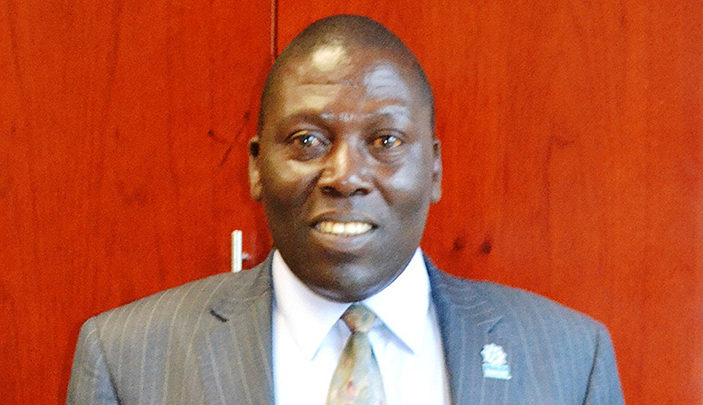Local News
GMO law should revolutionise agriculture
Currently there is no specific law regulating research, development and use of biotechnology in Uganda

President Yoweri Museveni has again returned to Parliament the Genetic Engineering Regulatory Bill, 2018 for reconsideration. He had earlier bounced the National Biotechnology and Biosafety Bill, 2012 following concerns over its title and sanctions for scientists who comingle genetically modified organisms (GMOs) with indigenous crops and animals, etc.
The Bill seeks to designate institutions that should regulate and promote research, safe development and use of biotechnology in Uganda. It will also provide mechanisms to regulate the general release of GMOs. This is to maximise the benefits of biotechnology in modernising agriculture, protecting the environment, enhancing public health and boosting industrialisation.
The National Crop Resources Research Institute Director of Research, Dr Godfrey Asea says biotechnology became a controversial subject due to disinformation and miscommunication. Biotechnology refers to any technique that uses living organisms or substances from living organisms to make or modify a product, and improve plants, animal breeds or micro-organisms for specific purposes. On the other hand biosafety means the safe development, transfer, application and utilization of biotechnology and its products and/or byproducts.
According to Dr Barbara Mugwanya Zawedde, coordinator of Uganda Biosciences Information Centre at the National Agricultural Research Organisation, man has used biotechnology for over 6,000 years to make important products such as medicines. It helps in cobalt extraction, and production of medical insulin for managing diabetes, Hepatitis and HIV, among other uses. In Uganda, industries have used it for many years to process wine and beer, produce cheese and yogurt, and even leaven bread.
Modern biotechnology includes using newer tools such as tissue culture and artificial insemination to combat devastating and rare diseases. It involves the use of genetic engineering techniques to transfer useful characteristics such as disease resistance or tolerance to drought, development of medicine or improving the environment. It is also used to produce disease-free crops in harsh climatic conditions and reduce environmental degradation through cleaner energy and less carbon emissions.
It is estimated that Uganda loses over UGX1trillion (about US$300 million) annually in revenue from bananas due to bacterial wilt, and over UGX90billion (US$24.2m) due to cassava brown streak disease. Other losses are in maize about UGX72.2bn (US$19.4m) due to drought and maize stem borer, over UGX23billion (US$6.2m) due to soil related stress in rice, over UGX476bn (US$128m) to late blight in Irish potatoes and about UGX25billion (US$6.7m) to weevil and virus infestation in sweet potatoes
Currently there is no specific law regulating research, development and use of biotechnology in Uganda. Provisions relating to biotechnology are scattered in laws regulating several sectors, such as natural resources conservation and utilization, industrial development and environmental protection whose administration and management is entrusted to various agencies and departments of Government. The Genetic Engineering Regulatory law will enable scientists avail farmers with improved crops from years of research and development. For example, it takes at least 15 years to improve a banana.
The NRM government is committed to stimulating agricultural, industrial, technological and scientific development by adopting appropriate policies and enactment of enabling legislation. It has spent over UGX20bn in the last 15 years to build capacity to use genetic engineering tools for transforming the agricultural, human and veterinary health and industrial sectors, and to manage the environment (Source: Uganda Biosciences Information Centre).
The development of GMOs offers the potential for increased agricultural productivity and improved nutritional value that can contribute directly to enhancing human health and development. There are also indirect benefits such as reduced agricultural chemical usage due to disease-free crops, enhanced farm income, improved crop sustainability and food security.
However, as the chief representative of the people, President Yoweri Museveni has raised issues that he wants addressed by Parliament before he assents to the enabling law. Among the contentions are sharing the benefits of genetic inventions between the breeder/inventor and indigenous communities, safe use of dangerous pathogens and potentially toxic substances, and national security.
If Parliament fully addresses itself to those issues, GMOs should improve livelihoods and increase Uganda’s global competitiveness in agricultural production and productivity. A brighter future with sufficient and safe food supplies, cleaner and safer environment, reduced disease burden and a stronger economic competitive advantage will be expected.
SOURCE:New Vision




